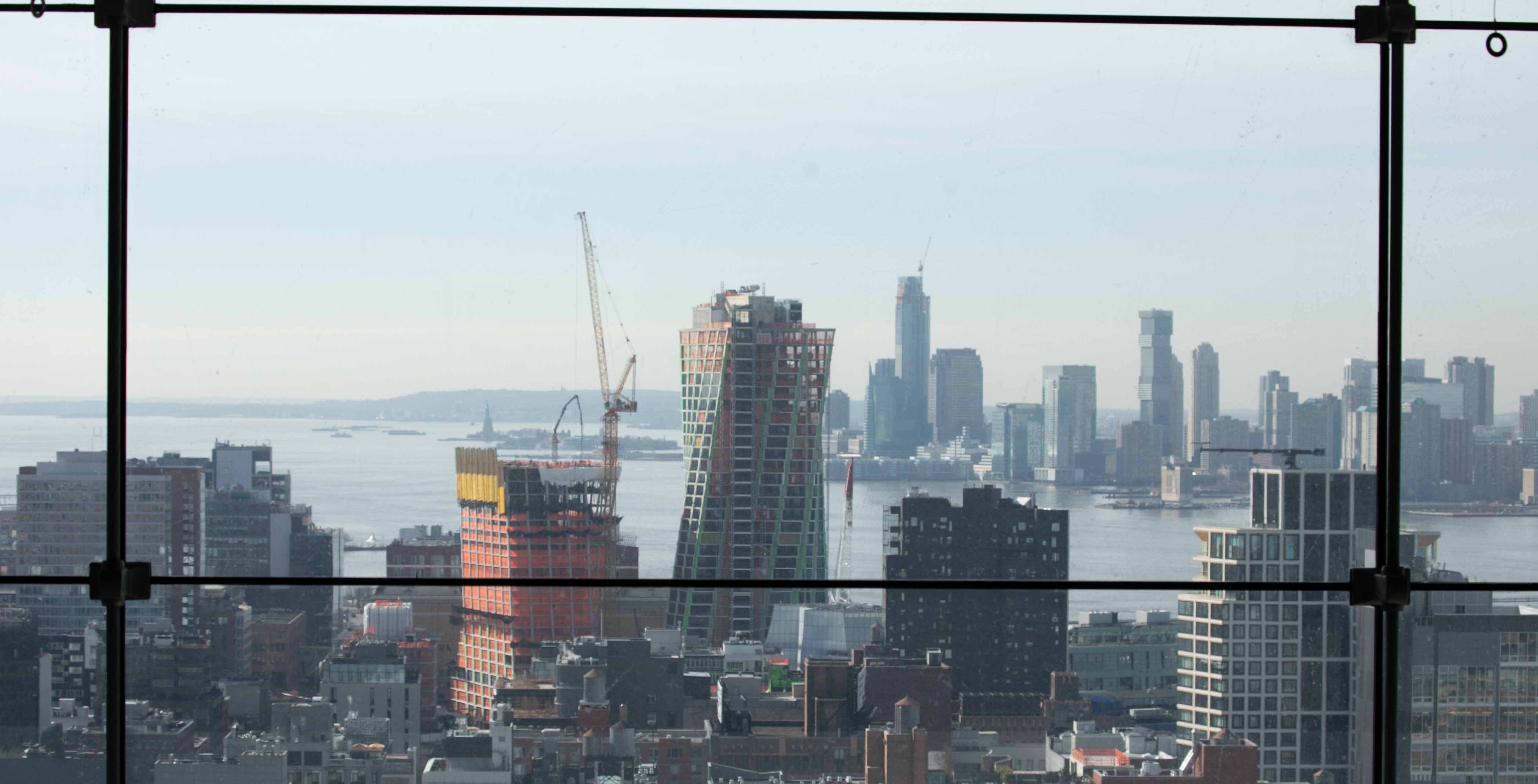Insights from the 2019 AFIRE Winter Conference
The quote from the Nobel Prize winning scientist, who lived from 1867 to 1934, still resonates in today’s world. “To a great extent, we are all in a state of heightened fear as we talk about markets, the economy, politics, what’s going on in Europe, the United States, China, the changes in technology, and other disruptive influences. And our reactions quite often are determined by how afraid we are. We become more emotional. It becomes difficult for us to tolerate someone who’s saying something that scares us. So, we shut down. The only solution as far as I can tell is for us to spend more time understanding,” said Gunnar Branson, CEO of AFIRE.
As such, the AFIRE Winter Meeting, which was held in New York City in February, explored the various types of “understanding” that are needed to move beyond fear in these decidedly unsettling times. Indeed, to move forward, real estate leaders need to simultaneously understand themselves, the world and real estate trends.
HUMAN VALUES IN A BOTTOM-LINE WORLD
During the opening keynote of the AFIRE Winter Meeting, George Mitchell, D-Maine, 1980 to 1995, reminisced about a speaking tour that he was on right after he had negotiated the “Good Friday Peace Agreement” in Ireland. During this tour, hosts would typically welcome Mitchell with the “longest, most fantastic introductions. In Chicago, a guy stood up for 25 minutes and read every event in my life. The proper reaction would have been to show some humility and tell these hosts to keep it short, but I loved it. I was so impressed with myself I had a hard time squeezing my head through the front door,” Mitchell said.
Right after delivering a speech in Connecticut, an elderly woman rushed up to Mitchell, shook his hand vigorously and spent several minutes praising his international accomplishments. Then she said, “I don’t live anywhere near. I drove three hours across the entire state just to meet you, shake your hand, and ask you please, will you autograph my poster?”
When Mitchell went to sign the poster, he noticed that it was, in fact, a picture of Henry Kissinger. Mitchell told the woman that he was not Kissinger. She initially expressed disappointment, but quickly recovered and whispered “would you please sign the poster anyway? Nobody will ever know the difference.” Mitchell did as she asked and has been carrying a renewed sense of humility with him ever since.
Such humility is one of many character attributes that effective leaders should aspire to possess. Thomas DeLong, Senior Fellow, Harvard Business School, put the spotlight on many other qualities, as he interacted with AFIRE members during an session that focused on what it really means to be an “authentic leader.”
During his session, DeLong pointed to the difference between “resume values” and “eulogy values.” Professional accomplishments and accolades typically count when it comes to writing a resume. The kindness, empathy and compassion that people show to others, however, are what count when someone delivers your eulogy.
“Our lives are set up to reward the resume values and we have to figure out how to nurture and develop all those other, more important values,” he said.
DeLong also presented a case study that focused on how human values make a difference in the workplace. Here’s an encapsulated version: Rob Parsons, an investment banker was up for a promotion at Morgan Stanley. While Parsons was a top producer, his off-putting personal behavior was often at odds with the company’s values, which centered on teamwork and collaboration. As such, Paul Nasr, his supervisor, was in a conundrum as he contemplated whether he should promote Parsons.
The case study prompted audience members to take part in a discussion of the need to balance “performance” values with an organization’s “cultural” values. “Culture matters, and I think that even though Parsons has the ability to make the business successful, he needs to spend some time trying to be a part of the culture to earn the promotion. Morgan Stanley’s culture was differentiated from other banks and it was known for being a very collaborative place. Before you downgrade your culture with a star performer, you have to think about the impact on the organization,” said one of the participants.
DeLong also showed a video presenting what really makes people happy. “What makes you happy? Having fun? Hanging out with friends? Delicious food? Making money? Well consider this: Psychologists have scientifically proven that one of the greatest factors to overall happiness in your life is how much gratitude you show,” the video’s narrator said.
At the conclusion of the short video, DeLong encouraged audience members to write a letter of gratitude to someone who is important in their life – an exercise that he requires his Harvard business students to complete as part of their course work. “What blows me away is how many of my students say, ‘that was most important thing I have ever done at the Harvard Business School.’”
Some conference attendees initially questioned what these altruistic life lessons can bring to their career. But, the value of these notexpected- at-a-real-estate-conference lessons eventually sunk in. “What I’ve been hearing back from people is, ‘yes, it’s the secret sauce to success.’ We all talk about our market knowledge and various sophisticated strategies but at the end of the day, the real key to success is our ability to have a team of people working as effectively as possible and to carry out their work with a sense of civility, empathy and humility,” said Gunnar Branson, CEO of AFIRE.
UNDERSTANDING THE WORLD WE LIVE AND INVEST IN
While real estate professionals need to look deep within themselves to develop the character traits that will help them succeed in business (and life), they also need to understand what is happening in the world around them. Both Mitchell and Rodger Baker, Senior Vice President of Strategic Analysis at Stratfor, provided valuable insights on global trends and their potential economic impacts during the conference.
Mitchell, who helped broker the “Good Friday Peace Agreement” in Northern Ireland, discussed the impact that peace has on the global business environment. He noted that Europe has enjoyed relative peace after the conclusion of World War II and credited the calm to “institutions and alliances painstakingly created in the aftermath of that great war.” He also said that “the bonds of friendship between the United States and our European allies remain as vital to global safety and stability today as they were six decades ago.”
Mitchell added that institutions such as the United Nations, NATO, World Bank, International Monetary Fund, and European Union all are working to “prevent a repeat of the devastating past by promoting increased trade and increased security.”
While there are fears that President Trump intends to withdraw the United States from NATO and many Americans see trade agreements as a threat to job security, they are not the major reason that jobs are lost, according to Mitchell. Certain industries and economic sectors simply disappear, as they always have. As a result, “we must figure out how to retain the benefits of science, advance knowledge and technology while at the same time mitigating the adverse effects on the millions of our fellow citizens who are victims, not beneficiaries, of technological change,” he said.
Baker weighed in on the geopolitical outlook in Asia and its economic implications. While China, Europe and the United States formed the three pillars of global power and cooperated with one another, “after the global economic crisis, all of that changed,” asserted Baker, who predicts the new world order will retain China and the United States as superpowers, with Europe and Russia playing “sub-power” roles. He believes that global trade is peaking because of regionalism and slowing population growth. Until recently, the Chinese consumed what they made and made what they consumed, allowing them to isolate themselves. As the country is now so dependent on international trade, withdrawal is no longer a viable option.
Jim Costello, Senior Vice President, Real Capital Analytics, and Joseph Walsh, Faculty Associate, Wisconsin School of Business, added to the discussion of global trends by presenting results from the AFIRE 2019 International Investor Survey. Respondents were pessimistic rather than optimistic about the state of cross-border investing for this year—a trend that has continued for the past few years.
The US market emerged as the greatest opportunity for non-US investors investing in commercial real estate. Other positives, respondents say, are economic growth, the industrial market and multifamily properties. Respondents saw political concerns, currency risk, interest rates and geopolitical factors as the greatest risks.
More than 80% of respondents said that their expectations on climate change will affect their investment strategy. Following Hurricane Sandy, certain types of investors changed where they invested within Manhattan as far as office buildings.
While industrial and multifamily properties continue to be attractive to survey respondents, office and retail trail. Costello noted that lenders are reluctant to make loans on retail. “There’s just so much institutional fear from all the way up, from people just thinking of retail as something the internet’s killing but it’s a game of winners and losers.” Political and geopolitical risk has popped up in survey results as a huge concern for a couple of years. “Is the global consensus of open borders capital flow starting to fray?” questioned Walsh. “Starting with geopolitical and political issues, trade and tariffs, is that going to impact who’s investing and where they’re able to invest?”
Indeed, while geopolitical trends are important for real estate investors to consider, so too are environmental concerns. “Green pays. It’s not just good, it’s economically good, and it’s the right thing to do,” Matt Ellis, CEO of Measurabl, told attendees during a session on ESG Certification.
There is “a straight line between financial performance and nonfinancial performance, sustainability performance. Green buildings enjoy higher lease rates and they fetch better sales prices when they go to market.”
But what is green? Who decides? And does “green” mean the same thing to all investors, or do certain aspects of green have more value for individual investors?
While there is a continual trend in real estate investment toward buildings that incorporate ESG (Environmental, Social and Governance) values, less than one percent of commercial buildings qualify for the official designations such as LEED (Leadership in Energy and Environmental Design), BREEAM and others, Ellis said. In the future, investors will embrace data on a building’s environmental performance rather than an official certification of status to make purchasing decisions. Hard data will lead to investments that make good sense, in both financial and socially responsible aspects, leading to better valuation of assets.
HUDSON YARDS: A CASE OF TRANSFORMATION
While it is important to understand what is going on in the world, some say New York is the epicenter of that world. As such, an up-close look at an innovative real estate development project provides plenty of food for thought for today’s real estate professionals:
Hudson Yards promises to change the landscape of New York City— a formidable task. In development for more than 10 years, Hudson Yards was originally conceived as an economic development project by local government. Hudson Yards has created a city within the city, and all in an area even many native New Yorkers were unfamiliar with. Hudson Yards is the largest private development ever, comprising 20 million square feet of mixeduse buildings on 28 acres of land, overseen by Related Companies.
Because of the economic downturn, any obligation to start construction by certain dates was stricken. Instead, certain levels for three different factors needed to be met, for condo prices, office vacancies and architectural billing index.
“But it turned out to be great because we used that time to really plan, think, and redesign what Hudson Yards is now, effectively, and that wasn’t what we went in with. It’s a huge success, but maybe not in the original way that was expected,” said Jeff Blau, CEO of Related Companies.
While New York has a lot to offer real estate investors, development there has become increasingly difficult because of rapidly increasing land and construction costs and an unfriendly political environment. Not to mention a lack of available land. “Hudson Yards might be one of the last great mega developments in New York,” Blau said, “because I don’t know where else they would go.”
Related Companies now charges its highest rents in New York City on the West Side, and its lowest on the Upper East Side. “That is a huge shift. New York City is tilting west,” said Blau. Zoning is at the root of this shift. “This area of Chelsea, West Chelsea, and the Hudson Yards area, Hell’s Kitchen, really was an ignored part of New York City for many, many years, driven mainly by zoning. The rezoning of West Chelsea really changed everything,” Blau said. Rezoning the avenues to residential and making the mid-blocks nonmanufacturing/ industrial drove down land and rent prices. Low rents attract art galleries, restaurants, bars and nightlife, which in turn attract residents.
At first, companies were reluctant to shift their offices and shops to Hudson Yards, an area they didn’t know. So, Related changed the conversation. They urged potential tenants to “start to think about real estate as a talent attraction and retention tool,” said Blau. Because traditional retail is in a slump, retail at Hudson Yards is focused on entertainment, restaurants and amenities. Related also took on a more active role than usual. They convinced new, online startup companies to create a physical presence with a unique bricks-and-mortar store at Hudson Yards, working with them closely and even investing in them at times.
Hudson Yards’ formula seems to be working. Related has been able to lease almost eight million square feet of office space in the past five years; had leased more than 90 percent of the retail space by opening, despite the difficult retail environment; and had sold more than a billion dollars’ worth of condos within three years. The March 15 opening brings three office buildings, 100 retail shops, 20 restaurants, two residential buildings, the Equinox Hotel, Equinox Club, The Vessel and public spaces in the Plaza. Such placemaking attracts the talent companies need.
In the final analysis, the understanding that was gained from the presenters as well as the interaction among attendees at the conference, of course, is just a start. As such, Branson encouraged attendees to walk away from the conference and continue to “open your mind as best you can, challenge your assumptions, realize that you might not be right and can learn from someone else. We have to understand more to do more.”


